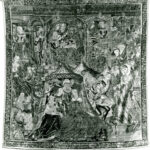Research Focus
Dr. Majid Fotuhi began his research career in 1987 as a doctoral student at the Institute of Neuroscience at Johns Hopkins University. There, he investigated the cellular and biochemical properties of glutamate receptors in the brain, which play a role in strokes and neurodegenerative diseases.
After completing his doctorate, Majid Fotuhi continued his work at Massachusetts General Hospital, where he studied the distribution of glutamate receptor subtypes in the hippocampus, an important brain region for learning and memory.
As an Assistant Professor of Neurology at Johns Hopkins University and the Director of the Center for Memory and Brain Health at Sinai Hospital, Fotuhi focused on the role of nonsteroidal anti-inflammatory drugs (NSAIDs) and nutrition (especially antioxidant vitamins and omega-3 fatty acids) in brain performance in older adults.
He then analyzed the neuroscience literature on the role of diabetes, obesity, traumatic brain injury, and hypertension in causing hippocampal atrophy in aging, and found that a significant portion of late-life dementia is attributable to modifiable risk factors associated with a healthy or unhealthy lifestyle.
Based on these research findings, Dr. Majid Fotuhi founded an independent brain center and developed a multidisciplinary “Brain Fitness Program” for patients with age-related cognitive impairments, vascular diseases, and/or post-traumatic disorders.
As the Medical Director of the NeuroGrow Brain Fitness Centers, Dr. Fotuhi has developed an evidence-based, innovative brain health program that incorporates cutting-edge technologies. This program includes targeted cognitive exercises, nutritional recommendations, sleep hygiene, and stress management strategies to optimize brain function and prevent or slow down neurological disorders.
The training program has proven to be highly effective in improving the cognitive functions of his patients, and in some cases, a measurable enlargement of the hippocampus has been observed.
In his role as Chief Medical Officer of the Neurocore Brain Performance Centers, Dr. Fotuhi works to promote individual performance enhancements and mental fitness through targeted neurofeedback-based training programs. This training program utilizes state-of-the-art technologies to measure brain activity and provide feedback, leading to improved concentration, attention, and stress management.
Dr. Majid Fotuhi is dedicated to educating the public about the importance of brain health and the prevention of neurological disorders. He regularly gives lectures and workshops to inform the public about the latest scientific findings and prevention measures.
Thanks to his groundbreaking research and commitment to improving brain health, Dr. Majid Fotuhi has had a lasting impact on neurological research and patient care. His work contributes to a better understanding of the brain and promotes innovative approaches to improve the quality of life for people with neurological disorders.
Selected Publications
1. Wise RA, Fotuhi M, Cole LM. Facilitation of feeding by nucleus accumbens amphetamine injections: Latency and speed measures. Pharmacology Biochemistry and Behavior 1989; 32(3):769–72.
2. Dawson TM, Bredt DS, Fotuhi M, Hwang PM, Snyder SH. Nitric oxide synthase and neuronal NADPH diaphorase are identical in brain and peripheral tissues. Proceedings National Academy of Sciences USA 1991; 88(17):7797–801.
3. Bredt DS, Glatt CE, Hwang PM, Fotuhi M, Dawson TM, Snyder SH. Nitric oxide synthase protein and mRNA are discretely localized in neuronal populations of the mammalian CNS with NADPH diaphorase. Neuron 1991; 7(4):615–24.
4. Steiner JP, Dawson TM, Fotuhi M, Glatt CE, Snowman AM, Cohen N, Snyder SH. High brain densities of the immunophilin FKBP colocalized with calcineurin. Nature 1992; 358(6387):584–7.
5. Sharp AH, Dawson TM, Ross CA, Fotuhi M, Mourey RJ, Snyder SH. Inositol 1,4,5-triphosphate receptors: immunohistochemical localization of discrete areas of rat central nervous system. Neuroscience 1993; 53(4):927–42.
6. Hwang PM, Fotuhi M, Bredt DS, Cunningham AM, Snyder SH. Contrasting immunolocalization in rat brain of two novel K+ channels of the Shab subfamily. Journal of Neuroscience 1993; 13(4):1569–76.
7. Fotuhi M, Sharp AH, Glatt CE, Hwang PM, von Krosigk M, Snyder SH, Dawson TM. Differential localization of phosphoinositide-linked metabotropic glutamate receptor (mGluR1) and the inositol 1,4,5-triphosphate receptor in rat brain. Journal of Neuroscience 1993; 13(5):2001–12.
8. Fotuhi M, Dawson TM, Sharp AH, Martin LJ, Graybiel AM, Snyder SH. Phosphoinositide second messenger system is enriched in striosomes: Immunohistochemical demonstration of inositol 1,4,5-triphosphate receptors and phospholipase C beta and gamma in primate basal ganglia. Journal of Neuroscience 1993; 13(8):3300–8.
9. Fotuhi M, Standaert DG, Testa CM, Penney JB Jr., Young AB. Differential expression of metabotropic glutamate receptors in the hippocampus and entorhinal cortex of the rat. Molecular Brain Research 1994; 21(3–4):283–92.
10. Dawson TM, Steiner JP, Lyons WE, Fotuhi M, Blue M, Snyder SH. The immunophilins, FK 506 biding protein, and cyclophilin are discretely localized in the brain: Relationship to calcineurin. Neuroscience 1994; 62(2):569–80.
11. Steiner JP, Dawson TM, Fotuhi M, Snyder SH. Immunophilin regulation of neurotransmitter release. Molecular Medicine 1996; 2(3):325–33.
12. Brotman D, Fotuhi M. Syphilis and orthostatic shaking limbs. Lancet 2000; 356:1734.
13. Hayden KM, Zandi P, Khachaturian AS, Fotuhi M, Norton MC, Tschanz JT, Pieper CF, Corcoran C, Lyketsos C, Breitner JCS, Welsh-Bohmer KA. Does NSAID use modify cognitive trajectory in the elderly? The Cache County Study. Neurology 2007; 69(3):275–82.
14. Wengreen, HJ, Munger RG, Corcoran CD, Zandi P, Hayden KM, Fotuhi M, Skoog I, Norton MC, Tschanz JT, Breitner JCS, Welsh-Bohmer KA. Antioxidant intake and cognitive function of elderly men and women. Journal of Nutrition Health Aging 2007; 11(3)230–7.
15. Fotuhi M, Zandi P, Hayden K M, Khachaturian AS, Wengreen H, Munger R, Norton MC, Tschanz JT, Lyketsos K, Breitner JCS, Welsh-Bohmer KA. Better cognitive performance in elderly taking anti-oxidant vitamins E and C in combination with NSAIDs. Alzheimer’s and Dementia 2008; 4(3):223–7.
16. Fotuhi M, Mohassel P, Yaffe K. Fish consumption, long-chain omega-3 fatty acids, and risk of cognitive decline or Alzheimer disease: A complex association. Nature Clinical Practice Neurology 2009; 5(3):140–52.
17. Fotuhi M, Glaun B, Quan WY, Sofare T. Vestibular migraine: A critical review of treatment trials. Journal of Neurology 2009; 256(5):711–6. (Epub March 2009).
18. Fotuhi M, Hachinski V, Kivipelto M, Whitehouse P. Factors associated with resistance to dementia despite high Alzheimer disease pathology. Neurology May 21, 2009.
19. Fotuhi M. Tips for preserving memory. Practical Neurology 2009; 8(3):34–40.
20. Fotuhi M, Hachinski V, Whitehouse P. Changing perspectives regarding late-life dementia. Nature Reviews Neurology 2009; 5(12):649–58. (Epub Nov. 17, 2009).
21. Fotuhi M. How accurate is Alzheimer’s diagnosis among patients over the age of 80. Practical Neurology 2009; 8(8):42–5.
22. Fotuhi M, Do D, Jack C. Modifiable factors that alter the size of hippocampus with aging. Nature Reviews Neurology 2012; 8(4) 68-72.
23. Fotuhi M, Lubinski B, Riloff T, Trullinger M, Ghasemi M. Evaluation of a multi-disciplinary Brain Fitness Program for treatment of cognitive impairment in elderly. JSM Alzheimer’s Disease and Related Dementia 2014; 1(1) http://www.jscimedcentral.com/AlzheimersDisease/alzheimersdisease-1-1002.pdf
24. Fotuhi M, Lubinski B, Riloff T, Trullinger M, Hauserman N, Hadadi M, Raji C. “A Personalized 12-week “Brain Fitness Program” for Cognitive Improvement, Brain Wave Normalization, and Hippocampal Volume Expansion in Elderly with Mild Cognitive Impairment. Journal of Prevention of Alzheimer’s Disease; 3(3):133-137 http://dx.doi.org/10.14283/jpad.2016.92
25. Fotuhi, M, Dwivedy, P, Yeom, L, Nadeem, I, Ebadi, A, Miles, M., & Tittle, R. K. (2020). Retrospective Analysis of a Comprehensive Concussion Recovery Program. The Journal of Rehabilitation, 86(1), 20. https://www.neurogrow.com/wp-content/uploads/2020/05/Fotuhi-JOR-published-2020.pdf
26. Post-Concussion Syndrome, or Memory Loss, Journal of Alzheimer’s Disease Reports (2023). DOI: 10.3233/ADR-220091







